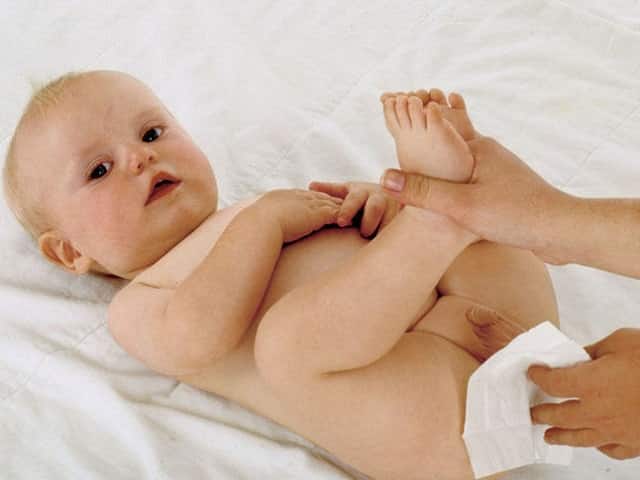testicular ectopia - cryptorchidism
What is testicular ectopia - cryptorchidism ?
 Testicular ectopia, also known as cryptorchidism, is an abnormality of the male genital tract that occurs when one or both testicles fail to migrate correctly during fetal life. This condition can manifest in a variety of ways and can be caused by a number of causes.
Testicular ectopia, also known as cryptorchidism, is an abnormality of the male genital tract that occurs when one or both testicles fail to migrate correctly during fetal life. This condition can manifest in a variety of ways and can be caused by a number of causes.
What causes testicular ectopy in men ?
Although the causes of testicular ectopia are unknown, genetic, hormonal, and environmental factors can impact its development. The perineum and root of the thigh are the most common sites of ectopic testicles.
How to diagnose testicular ectopia in children ?
The diagnosis of testicular ectopia in children is mainly clinical. The doctor feels the bursae to check if the testicle has descended. If it is still poorly placed, but the doctor feels it upon palpation, he will immediately reassure the parents. In some cases, an inguinal hernia may be diagnosed, which would require surgery. All babies diagnosed with testicular ectopia at birth are re-examined one year later to assess progress. Approximately 90% of children brought for consultation for testicular ectopia actually present this anomaly.
What are the symptoms of cryptorchidism to watch out for ?
Cryptorchidism, also known as undescended testicle, is an abnormality of the male reproductive tract caused by a failure of one or both testicles to migrate during fetal life. Although this condition usually has no clear symptoms, there are certain signs that can help you identify it. You should watch for these symptoms:
One of the most obvious symptoms of cryptorchidism is the inability to feel or palpate one or both testicles of the scrotum.
Other symptoms: Cryptorchidism usually has no other visible symptoms other than the absence of visible testicles. However, if the testicle does not snap back into place and is not treated, complications such as infertility, increased risk of testicular cancer, testicular torsion, testicular trauma, or psychological and cosmetic problems can occur. occur.
What are the treatment options for undescended testicle ?
The position of the testicle and associated symptoms determine treatment options for cryptorchidism (undescended testicle). Here are the main treatment options:
Surgery (orchidopexy): Orchidopexy surgery allows the testicle to be fixed in the bursa if it has not descended before the age of one year. The testicle is usually released through an incision at the gland before being placed in the bursa and fixed.
Annual monitoring: It is possible to carry out annual monitoring if the testicle is not not linked to a spermatic cord that is too short, especially for the elevator testicles.
Other treatments: Gonadotropin injections have been used to help the descent of the testicle, but they no longer work in the face of abnormal migration and are therefore no longer used.
Are there any risks associated with correction of testicular ectopia ?
Although the risks associated with correction of testicular ectopia, also known as orchidopexy, are rare, it is important to consider potential complications. Here are some potential dangers:
Infections: Although this complication is generally rare, there is a risk of infection, as with any surgical procedure.
Bleeding: Although rare, bleeding can occur after surgery.
Anatomy-related complications: In some cases, the anatomy of the urinary system and/or bloodways may be less favorable, which can complicate and increase the risks of the procedure.
Recurrence: After the procedure, it is possible for the testicle to become ectopic again, although this is rare.
What is the typical recovery after surgery ?
Recovery after cryptorchidism, or undescended testicle, surgery is usually relatively quick.
Are there non-surgical alternatives to treat testicular ectopia?
There are few non-surgical options for treating ectopy testicles, also known as an undescended testicle. Here are some potential options to consider:
Watchful waiting: Regular monitoring may be recommended in some cases, particularly for testicles lifts, as the position of the testicle can vary and may eventually descend naturally.
Medical treatment: Hormonal treatments such as gonadotropin injections have previously been used to facilitate the descent of the testicle, but they are not very effective and are generally not recommended as first intention.
Can cryptorchidism affect male fertility ?
Yes, male fertility can be affected by cryptorchidism, or undescended testicle. It is one of the main causes of male infertility. Cryptorchidism can affect fertility by impairing testicular function. Typically, cryptorchidism is unilateral (one testicle has not descended) and has little impact on fertility compared to bilateral cryptorchidism (no testicle has descended). However, cryptorchidism can lead to male infertility, which may be due to low or even no sperm in the semen.